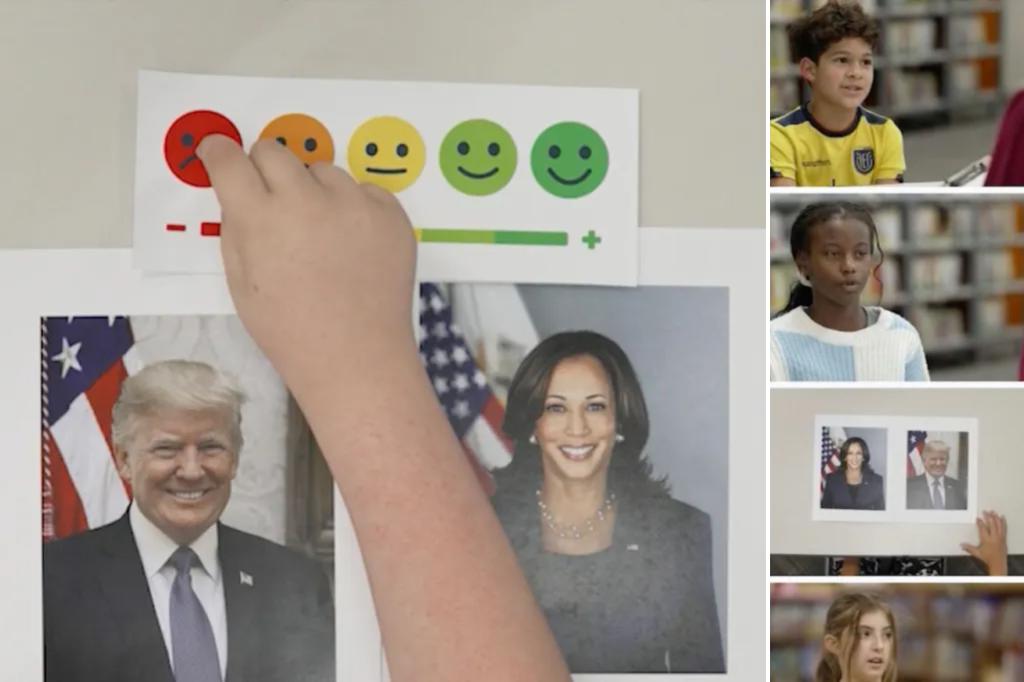A study conducted by CNN’s “Anderson Cooper 360” found that children who support former President Trump are more willing to visit the houses of families with opposing views than their Democratic-leaning counterparts. The study included over 40 hours of interviews with 80 elementary schoolers in Arizona, New Jersey, and Texas, conducted in both the spring and fall of the year. The interviews were done with parents’ or guardians’ approval and were led by Arizona State University associate professor Asheley Landrum, a child development expert and media psychologist. The findings suggest that Democratic-leaning children exhibited more negative emotions towards Trump compared to Republican-leaning children towards Vice President Kamala Harris.
The study found that Democrat-supporting kids were significantly more likely to express negative emotions such as nervousness, worry, or anger towards Donald Trump, while Republican-leaning kids were less likely to express similar feelings towards Kamala Harris. Anderson Cooper summarized the research findings on his show, noting that children in the study were polarized, with more extreme responses from kids in blue states compared to those in red states. For example, some Democrat-leaning children referred to Trump as being like Hitler, while responses from Republican-leaning children were less negative.
One interesting aspect of the study involved showing children images of houses with signs for the Republican and Democratic parties and asking if they would be okay with playing with friends at houses supporting the opposing party. Most children were open to visiting the house associated with either political party, but a higher percentage of Democrat-leaning kids were unwilling to visit the homes of children whose families supported Trump. In contrast, few Trump-leaning kids expressed unwillingness to visit a house supporting the Democratic Party. One child from a Biden-supporting family even suggested there might be an argument or food fight if they visited a Trump-supporting family’s house.
Some children cited reasons for their unwillingness to visit homes of families supporting the opposing political party, such as the belief that those families do not like Black people or because their own parents strongly dislike a certain candidate. However, there were also children who expressed openness to the idea of visiting houses with different political affiliations, emphasizing that differences in opinions should not prevent people from being friends. One boy mentioned that it’s about personality rather than political views when deciding if he would visit someone’s house.
Landrum offered a theory to explain the polarized responses from Democratic-leaning children, suggesting that their reactions may be influenced by their parents’ responses to Donald Trump as a highly polarizing figure. On the other hand, the less extreme attitudes of children in red states towards Kamala Harris may be due to lack of knowledge about her. Overall, the study highlighted the importance of teaching children about tolerance, understanding, and respect for differing opinions, regardless of political affiliation.















